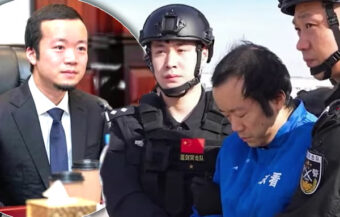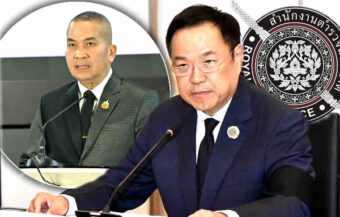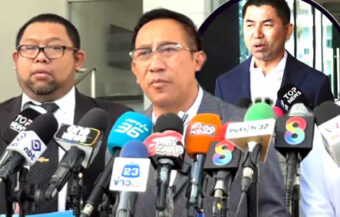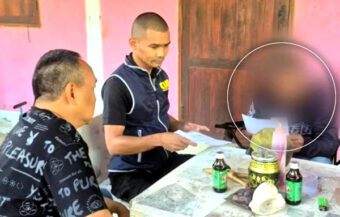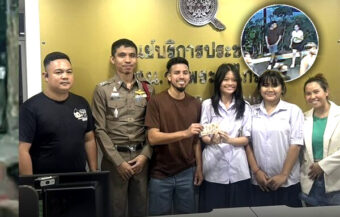Thailand’s foreign investment rises. New government boosts FDI by 58% in five months. Japan leads with $1.1 billion, but job creation is down by 33%. PM Srettha Thavisin prioritises attracting international firms to tackle economic challenges.
There are some encouraging early indications that international firms are reacting to the new government and that Foreign Direct Investment may rise this year. The latest results from the Ministry of Commerce for the first five months of the year were released on Sunday. Investment was up by over 58% compared to last year. However, job creation was down. The data released shows that Japan is still the kingdom’s top investor. Prime Minister Srettha Thavisin has identified foreign investment as critical to his government’s efforts to address the country’s economic challenges. At the same time, it is a challenging period when Thailand is trailing its peers in Southeast Asia in this regard.
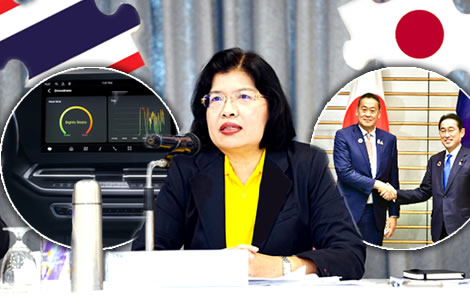
There are signs that foreign direct investment in Thailand is flickering back to life under the government of Srettha Thavisin. On Sunday, the Director-General of the Department of Enterprise Development, Auramon Supthaweethum, confirmed that approved projects for the first five months of 2024 were up 58%.
The total number of approved foreign investors rose to 317 with committed investments of ฿70 billion or $1.9 billion.
Jobs created through foreign direct investment down but the money committed by firms is up 58% from 2023 in the latest Board of Investment (BOI) update
Significantly, the number of jobs likely to be created has decreased. This may indicate a trend towards more high-technology investments. The number of jobs totalled only 1,200, down by nearly 33% from 2023. Last year, 1,787 jobs were created in the same period.
For that period last year, Thailand racked up ฿1.2 billion in foreign investment or ฿456.39 billion.
Leading the way for Thailand is Japan, traditionally the country’s largest investor. Japanese firms and sponsors accounted for 84 projects valued at $1.1 billion or ฿40.21 billion, 57.89% of the total.
In second place was Hong Kong, which is indeed part of China but an independent economic zone. It supplied 28 investment projects. These had a total investment value of ฿12.05 billion or $329 million.
China and Hong Kong are key players. However, Chinese EV makers in Thailand are looking closely at the possibility of US and European Union tariff barriers
China, a growing investor in Thailand, was in third place with 38 projects. The communist country, which is leading the way in EV car technology, invested ฿5.485 billion or $149 million.
A key concern for Chinese investors going forward will be the extension of US and European Union sanctions to Chinese-owned firms based in Thailand. Presently, Thailand is poised to benefit from the escalating trade war.
However, experience with the solar industry suggests that this may be upended by Western policymakers.
This week, top Chinese executives linked with the EV battery sector and other targeted industries held urgent meetings with Malaysian officials. They were seeking assurances from Malaysia that the United States would not impose such tariffs.
It is not known whether similar representations are being made to Thai officials.
After China, in fourth place came Singapore with $141 million or ฿5.189 billion. In fifth place was the United States, supplying 50 investors with $32.6 million or ฿1.2 billion.
New US factory in Chonburi to create 1,200 jobs
Among the investment projects that have been unveiled in recent weeks is the new Harman Electronics plant in Chonburi, which is projected to create 1,200 jobs.
Last week, there was a groundbreaking ceremony at the site in Laem Chabang.
The facility is situated within the Eastern Economic Corridor (EEC) project near Thailand’s deep-water port.
Harman, an advanced US electronics supplier to car makers, invested ฿2.8 billion in the new Chonburi plant
PM Srettha blames the stock market fall on politics, but the trend is linked to fundamental economic decline
At the same time, Irish giant Kingspan, a building material and insulation manufacturing conglomerate, has just announced its first acquisition in Thailand.
This was the Fatek Advanced Insulation Company in Ayutthaya, the company’s second acquisition in Southeast Asia after Vietnam.
25% of the new investments just announced are within the government’s Eastern Economic Corridor (EEC) flagship advanced industry zone in Eastern Thailand
On Sunday, Ms Auramon pointed out that 25% of the new investment projects were within the government’s flagship Eastern Economic Corridor (EEC) project. In short, the growth in investment here was 93% up on 2023 at $497 million or ฿18.224 billion.
Last year’s investment was $258 million or ฿9.442 billion.
Here also Japan led the way with 31 projects and investments of ฿3.523 billion. Then came China with 19 investors bringing in ฿1.803 billion. However, Hong Kong was the largest financial investor with ฿5.005 billion over just 11 projects.
The projects ranged in scale and applications from engineering services including air conditioning and industrial systems to software services. For example, the processing of credit cards and payment systems.
The developments also include vehicle systems such as those designed and produced by US company Harman to plastic and metal parts.
In addition, there were also firms producing software for sale and cybersecurity systems for warehouses and manufacturing.
Prime Minister Srettha Thavisin has insisted that Foreign Direct Investment is ultimately the key to addressing Thailand’s difficult economic challenges
Prime Minister Srettha Thavisin has identified foreign direct investment as a critical factor in the kingdom’s future economic development.
Therefore, he has prioritised international travel and meetings. Significantly, the PM has taken part in a number of high-profile summits since taking office in Japan while also focusing on engagement with US firms.
Last year, Thailand only attracted $2.969 billion in foreign direct investment as measured by the Bank of Thailand. Certainly, this figure for the first five months, if mirrored by financial transfers, looks encouraging.
In addition, there are signals of more real activity on the ground in terms of foreign firms expanding operations in Thailand.
Final figure that counts is from the Bank of Thailand
Notwithstanding this, the final figure for foreign direct investment or FDI is the figure collated by the central bank for the full year.
In contrast, approved projects by the Board of Investment (BOI) may at times fail to translate into reality.
Undoubtedly, Thailand last year was a laggard in Southeast Asia when it came to this economic parameter. The kingdom’s $2.969 billion compared to Indonesia at $21.7 billion, Malaysia at $18.6 billion, and Vietnam at $8.255 billion.
On average, from 1986 to 2023, Thailand recorded $5.04 billion in foreign direct investment.
At the same time, efforts to change the current pattern will not be achieved overnight. Thai government officials will be hoping that the trend of the last five months continues.
Nevertheless, it will take years for confidence in Thailand as an investment location to be fully restored. That process will take time, stability and patience.
Join the Thai News forum, follow Thai Examiner on Facebook here
Receive all our stories as they come out on Telegram here
Follow Thai Examiner here
Further reading:
Political maelstrom may be unleashed in June with potential crises brewing and coming to a climax
PM survives Constitutional Court’s call in a close run thing raising real questions over his future
PM Srettha Thavisin could be temporarily toppled from power on Thursday by the Constitutional Court
Digital Wallet plan blown out of the water by corruption body on Tuesday warning of illegality
Economy is in troubled waters with fears for both exports and foreign tourism as 2023 winds down









